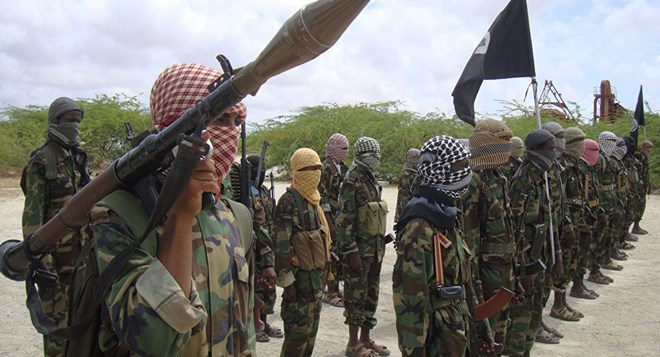
Monday October 15, 2018
By Bill Roggio & Alexandra Gutowski

Yesterday, Shabaab fighters attacked a Somali-led operation near Araara, Somalia, according
to a US Forces Africa Command (AFRICOM) press release today. US service
personnel were not present on the ground, but the US military did
conduct self-defense airstrikes after the Somali force came under small
arms fire. The airstrike killed four Shabaab terrorists and did not
injure or kill any civilians.
This is the third time in the past month that US forces have
conducted defensive airstrikes following Shabaab attacks. On Sept.
21, al Qaeda’s Somalia branch attacked US and Somali forces 50 kilometers northwest of Kismayo. On Sept. 11, Shabaab attacked US and Somail forces in Mubaraak, killing one partner force member.
These sustained attacks demonstrate that Shabaab retains the ability
to launch conventional offensives, in addition to its terrorist attack
capability.
AFRICOM continues to launch airstrikes in an attempt to disrupt Shabaab and its safe havens. Earlier this week, US forces targeted
Shabaab near Haradere, Somalia. At the time of the release, AFRICOM was
still investigating the exact results, which should include the number
of militants killed and an assessment of civilian casualties. The week
prior, AFRICOM conducted a strike near Kunyo Barrow killing one Shabaab terrorist.
The United States has conducted 27 strikes against Shabaab in 2018, AFRICOM’s Maj. Karl Wiest confirmed to FDD’s Long War Journal over email. AFRICOM is set to eclipse last year’s total of 31 strikes.
Despite the uptick in US air operations against Shabaab, the military
continually describes Shabaab as a direct threat to the US and its
allies.
The US State Department has also noted that Shabaab is a persistent threat. Its most recent report on terrorism described Somali as a “terrorist safe haven.” The report explained
that “… al-Shabaab experienced significant military pressure during
2017, but the group still maintained control over large portions of the
country. Al-Shabaab retained the ability to carry out high-profile
attacks using vehicle-borne improvised explosive devices (VBIEDs),
suicide bombings, mortars, and small arms.”
Bill Roggio is a Senior Fellow at
the Foundation for Defense of Democracies and the Editor of FDD's Long
War Journal. Alexandra Gutowski is a military affairs analyst at the
Foundation for Defense of Democracies.